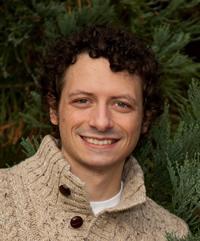
David Wilkinson
Class of 2012
Attorney, State of Alaska Department of Law
What did you do before law school, and what led you to pursue a law degree?
Before law school I lived in Fairbanks, Alaska and studied environmental chemistry. At the time, I was studying pollution in air and in fish. I wanted to explore a graduate-level degree geared towards finding solutions and effecting change. That led me to law school.
As a resident of Alaska, what appealed to you about Seattle University School of Law?
I was impressed by Seattle University's connections to Alaska, particularly the summer program in Anchorage. Although I had grown up in Alaska, I had almost no exposure to the legal community. I was excited to find a law school that could help me enter that community.
How did you stay connected to Alaska during law school?
I went back to Alaska every summer. After my first year, I participated in the Summer in Alaska Program, which involved a course on Alaska Native and environmental law and an internship at an Anchorage law firm. The coursework was relevant and the internship was fantastic. I returned to Alaska after my second year and externed at a state trial court. Both summers introduced me to the legal community and exposed me to Alaska's unique legal issues.
How has Seattle University School of Law benefited you as you returned to Alaska to begin your career? How has it benefited you in general?
After law school, I returned to Fairbanks to clerk for the Alaska Supreme Court. I have since stayed in Fairbanks, where I'm working at the Alaska Attorney General's Office on civil appeals and Alaska Native law. Seattle University helped me build connections in the legal community that opened doors to practicing in Alaska. And Seattle University's Alaska-specific courses helped me understand the state's legal issues and encouraged me to consider how I can tailor my career to serve my home.
Law school truly broadened my perspectives. I never expected to find myself thoroughly enjoying a course on corporate law, or creating a business plan for a public interest law firm, or sitting in a judge’s chambers discussing the pros and cons of a lawyer's argument style.
I'm grateful for Seattle University’s outreach in Alaska, its excellent professors, and its diverse, challenging coursework.
How does the legal community in Alaska benefit from Seattle University's active involvement there?
Seattle University is generating excitement. Alaska faces unique legal and social justice issues, and solutions will require drive and creativity. By tapping into local knowledge, connecting inspired practitioners with motivated students, and creating new academic opportunities, I think Seattle University is cultivating talent that will strengthen Alaska’s legal community and better the state.
